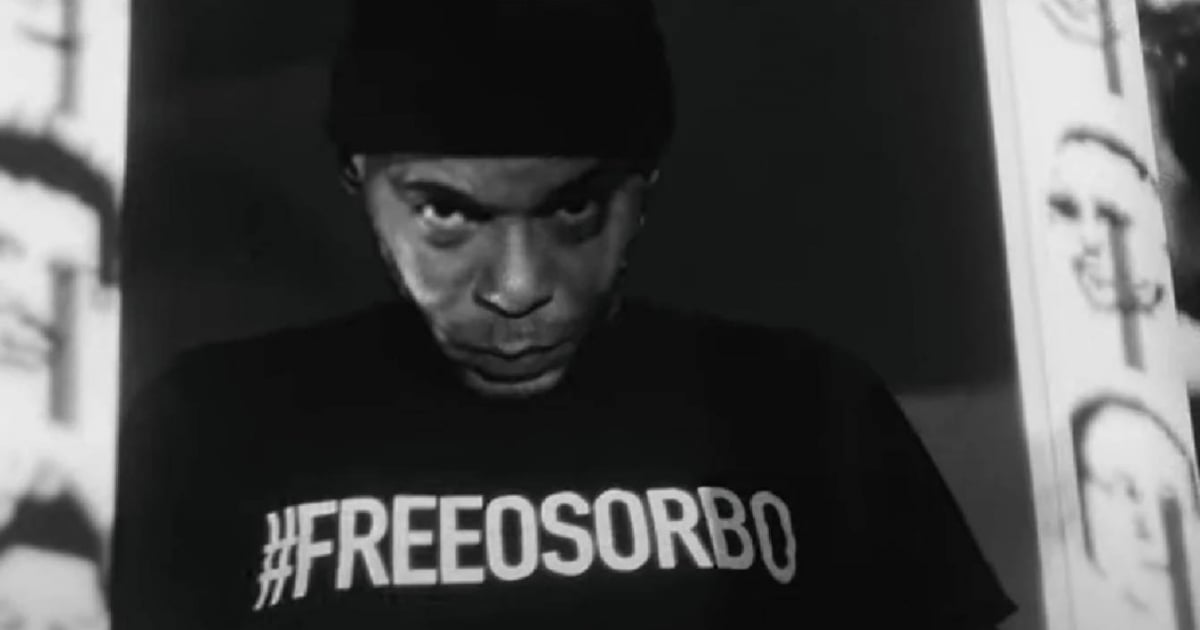The United States Citizenship and Immigration Services (USCIS) has denied permanent residency under the Cuban Adjustment Act to Cuban rapper Eliexer Márquez Duany, known as El Funky, due to his criminal record in Cuba. The immigration agency states that it rejects residency applications if there is a criminal history in the applicant's home country, regardless of the regime they come from, as reported by journalist Mario J Pentón.
El Funky’s application was turned down because he submitted his Cuban criminal record instead of a U.S. clearance, apparently due to a misunderstanding. Exiled in the U.S. since 2021 and a two-time Latin Grammy winner for his role in the protest anthem “Patria y Vida,” the musician received a denial letter from USCIS on April 30th.
The letter cites a one year and three months sentence from 2017 for "possession and trafficking of illegal drugs," according to a document accessed by El Estornudo magazine. U.S. immigration authorities have declared him "inadmissible" and notified him that "if you do not leave the United States within 33 days from the date of this letter, USCIS may issue a Notice to Appear and begin deportation proceedings against you in immigration court."
El Funky’s attorney, Miguel Inda-Romero, is actively working on appealing the case. "I am defending El Funky! Rest assured, he’s not going anywhere!" the lawyer declared. Available legal options to contest the decision include filing a Motion to Reopen or Reconsider if new facts or legal errors are evident; appealing to the Administrative Appeals Office (AAO) within 30 days of notification; seeking judicial review in federal court after exhausting administrative remedies; or pursuing proceedings before an immigration judge if the case is referred to the court.
There's also the possibility of applying for a waiver of inadmissibility (Form I-601/I-601A), or seeking a new application under a different legal route, such as marriage or employment offer, and political persecution claims. Organizations like the Cultural Rights Observatory (ODC) and Artists at Risk Connection (ARC) have condemned the charges against El Funky in Cuba as politically motivated, asserting that the Cuban regime fabricates common criminal charges as tools of repression against activists and dissidents.
Since his exile, El Funky has maintained a strong stance against the Cuban government and has been a vocal advocate for political prisoners on the island. Human rights defenders argue that his potential deportation would place him at significant risk of persecution, imprisonment, or retaliation upon returning to Cuba.
Understanding the Implications of U.S. Immigration Decisions
What is the Cuban Adjustment Act?
The Cuban Adjustment Act allows Cuban nationals who have been admitted or paroled into the United States to apply for permanent residency after one year, provided they meet certain eligibility criteria.
Why was El Funky’s residency application denied?
El Funky’s application was denied because he submitted a criminal record from Cuba, which showed a conviction for drug-related offenses, making him inadmissible under U.S. immigration laws.
What legal options does El Funky have following the denial?
El Funky can file a Motion to Reopen or Reconsider, appeal to the Administrative Appeals Office, seek judicial review in federal court, or pursue proceedings before an immigration judge. He may also apply for a waiver of inadmissibility.
